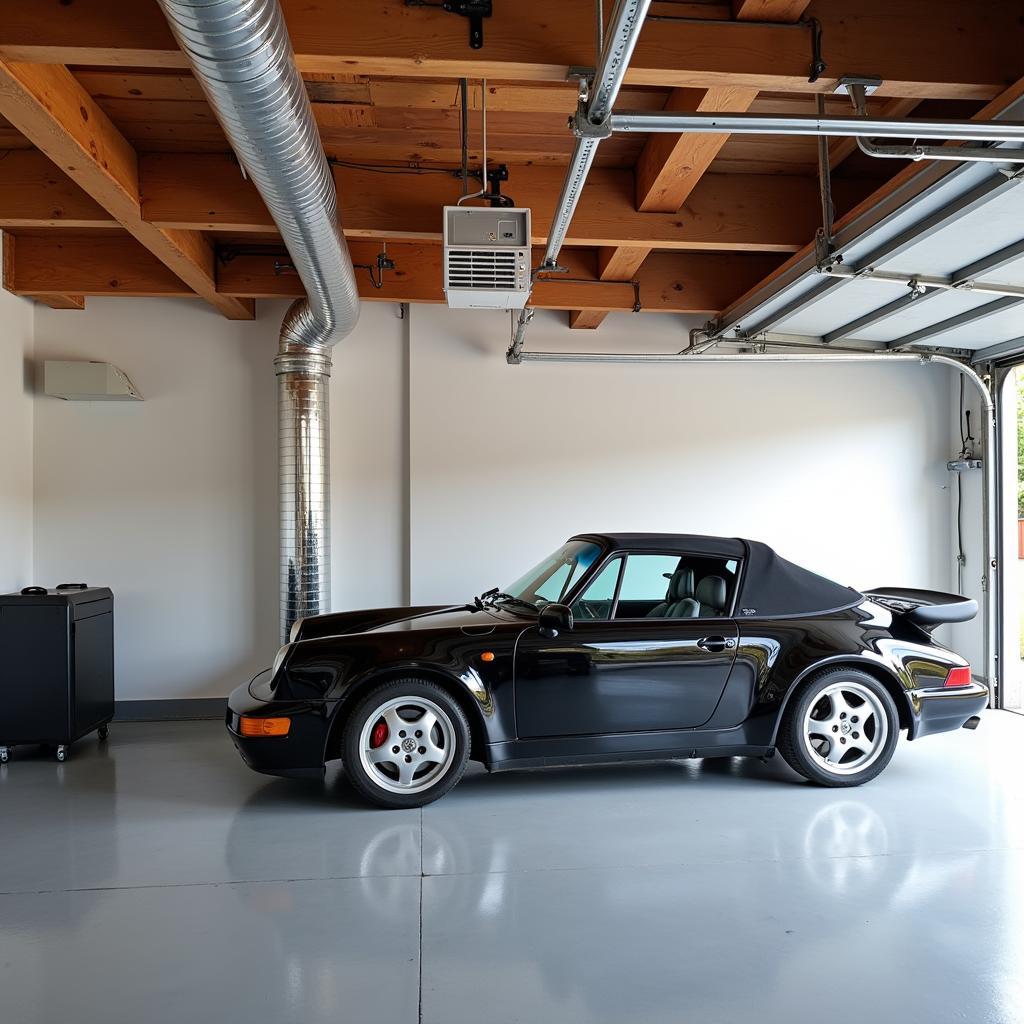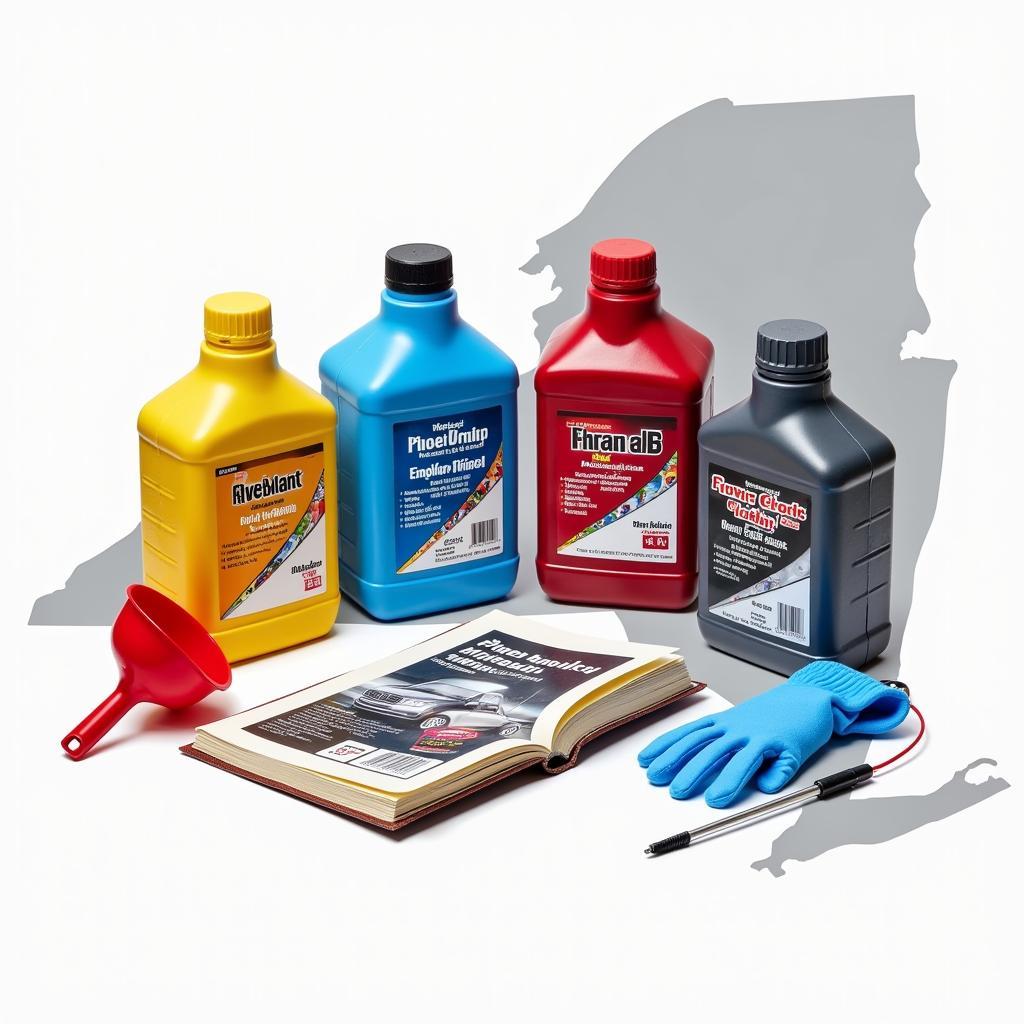Garage-kept cars, while seemingly protected, can surprisingly face a unique set of problems. Contrary to popular belief, simply parking your vehicle in a garage doesn’t guarantee its pristine condition. Several factors within the garage environment can contribute to unexpected issues that can impact your car’s appearance, performance, and longevity. Let’s explore these hidden dangers and learn how to mitigate them.
Similar to common car problems, garage-kept cars can experience a range of issues. One common misconception is that a garage provides complete protection from the elements. While a garage certainly offers better protection than leaving your car exposed to the open air, it’s not a foolproof solution. Factors like humidity, temperature fluctuations, and pests can still affect your vehicle.
The Hidden Dangers of the Garage
Humidity and its Devastating Effects
Humidity is a significant concern for garage-kept vehicles. Trapped moisture can lead to rust, mildew, and corrosion, impacting both the exterior and interior. In enclosed spaces, humidity levels can fluctuate dramatically, especially in regions with high humidity. This creates a breeding ground for mold and mildew, which can damage upholstery, carpets, and even internal components.
What problems can humidity cause in a garage-kept car? Humidity can lead to rust, mildew, corrosion, and mold growth, damaging both the interior and exterior of your vehicle.
Temperature Fluctuations and Their Impact
Even within a garage, temperature fluctuations can occur, causing stress on various car parts. Extreme temperature changes can lead to cracking and fading of paint, as well as damage to rubber seals and hoses. These fluctuations can also affect tire pressure, potentially leading to uneven wear and tear.
How do temperature changes affect a garage-kept car? Extreme temperature fluctuations can cause paint damage, damage to rubber seals and hoses, and affect tire pressure.
Pests: Uninvited Guests in Your Garage
Garages, often filled with nooks and crannies, can become havens for pests like rodents, insects, and spiders. These unwelcome guests can cause damage by chewing on wiring, nesting in the engine compartment, and creating unpleasant odors.
What kind of pest problems can occur in a garage-kept car? Rodents can chew wiring, insects can nest in the engine compartment, and spiders can create webs that obstruct airflow.
Preventing Problems in Garage-Kept Cars
Ventilation: Your First Line of Defense
Proper ventilation is key to controlling humidity and temperature within the garage. Installing vents or using a dehumidifier can significantly reduce moisture buildup and prevent the growth of mold and mildew. Regularly opening the garage door, even for short periods, can also help circulate air.
Why is ventilation important for a garage-kept car? Ventilation helps control humidity and temperature, preventing mold, mildew, and corrosion.
Pest Control: Keeping Unwanted Guests Out
Implementing pest control measures is crucial to protect your car from damage. Regularly cleaning the garage, sealing any cracks or openings, and using traps or repellents can help keep pests at bay.
How can I prevent pests from damaging my garage-kept car? Regularly cleaning the garage, sealing cracks, and using traps or repellents can help deter pests.
 Garage Ventilation System for Cars
Garage Ventilation System for Cars
Regular Maintenance: The Key to Longevity
Even with preventative measures, regular maintenance is essential for any car, especially one kept in a garage. Regularly inspect your vehicle for signs of rust, mildew, or pest damage. Ensure that fluids are topped off, and tires are properly inflated.
What maintenance should I perform on a garage-kept car? Regularly check for rust, mildew, and pest damage. Ensure fluids are topped off, and tires are properly inflated.
“Regularly inspecting your garage-kept car is crucial. It’s easier to address small issues before they become major problems,” says John Smith, Automotive Engineer at Autotippro.
Conclusion
While a garage provides a degree of protection, it’s not a magic shield against all car problems. By understanding the potential issues and taking preventative measures, you can ensure your garage-kept car remains in top condition. Regular maintenance, proper ventilation, and pest control are essential to preserving your vehicle’s value and longevity. Contact Autotippro at +1 (641) 206-8880 or visit our office at 500 N St Mary’s St, San Antonio, TX 78205, United States for expert advice and assistance. We’re here to help you keep your car in pristine condition, regardless of where you park it.
“Don’t neglect your garage-kept car. Proactive maintenance is the best way to avoid costly repairs down the road,” advises Jane Doe, Senior Mechanic at AutoTipPro.






Leave a Reply